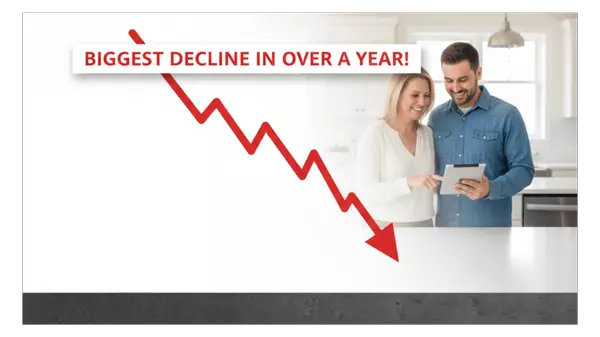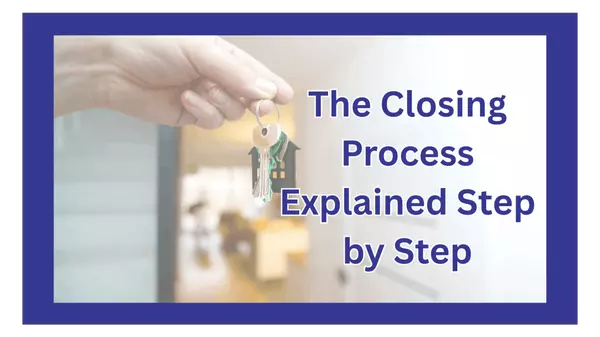The Biggest Mistakes Sellers Make (and How to Avoid Them)
Selling your home is one of the biggest financial and emotional decisions you’ll ever make. Whether you’re upgrading, downsizing, or relocating, you want to make sure you get the best price in the shortest amount of time. Unfortunately, many homeowners fall into common traps that can cost them thousands of dollars—or keep their homes sitting on the market longer than necessary.
The good news? These mistakes are avoidable with the right knowledge and the guidance of an experienced real estate team. Below, we’ll break down the most common mistakes sellers make and share practical strategies to avoid them.
1. Overpricing the Home
One of the most common mistakes sellers make is setting the listing price too high. It’s natural to want top dollar for your property, but buyers are savvy. With access to online listings and market data, they can quickly tell when a home is overpriced.
Why It’s a Problem:
-
An overpriced home gets fewer showings.
-
It may linger on the market, making buyers wonder if something is wrong.
-
Price reductions later often result in lower offers than if it had been priced correctly from the start.
How to Avoid It:
-
Work with a trusted agent who will run a Comparative Market Analysis (CMA).
-
Consider recent sales, market conditions, and home upgrades when pricing.
-
Be realistic: A competitively priced home attracts multiple buyers, which can drive the price higher naturally.
2. Neglecting Repairs and Maintenance
Another big mistake is putting the home on the market without addressing obvious repairs. Even small issues—like leaky faucets, chipped paint, or a broken light fixture—can give buyers the impression that the home hasn’t been well maintained.
Why It’s a Problem:
-
Buyers may assume there are hidden issues.
-
Small repairs can become negotiation points that lower your sale price.
-
First impressions matter—buyers want move-in ready homes.
How to Avoid It:
-
Walk through your home with a “buyer’s eye.”
-
Fix small issues before listing—patch holes, replace burnt-out bulbs, repair loose handles, etc.
-
Consider a pre-listing home inspection to identify bigger issues before buyers do.
3. Ignoring Curb Appeal
They say you never get a second chance at a first impression—and nowhere is that more true than in real estate. The exterior of your home is the first thing buyers see, whether online or in person.
Why It’s a Problem:
-
Poor curb appeal turns buyers off before they even step inside.
-
Photos of the exterior are often the first thing buyers notice online.
How to Avoid It:
-
Mow the lawn, trim bushes, and add fresh mulch.
-
Pressure wash siding, driveways, and walkways.
-
Add simple touches like a new doormat, potted plants, or a freshly painted front door.
4. Not Staging the Home
An empty or cluttered home can make it hard for buyers to imagine themselves living there. Staging helps highlight your home’s best features and creates a warm, inviting environment.
Why It’s a Problem:
-
Cluttered rooms feel smaller.
-
Empty spaces make it hard for buyers to picture furniture placement.
-
Unstaged homes don’t photograph as well, leading to fewer online clicks.
How to Avoid It:
-
Declutter and depersonalize: remove personal photos, excess furniture, and knick-knacks.
-
Rearrange furniture to maximize space and flow.
-
Consider professional staging—especially for vacant homes.
5. Using Poor Quality Photos
In today’s digital world, most buyers start their search online. Photos are the first impression your home makes—and bad photos can instantly turn buyers away.
Why It’s a Problem:
-
Dark, blurry, or poorly framed photos make your home look smaller and less appealing.
-
Listings with professional photos get more clicks and showings.
How to Avoid It:
-
Hire a real estate photographer who knows how to capture your home in the best light.
-
Use wide-angle shots to showcase space.
-
Highlight your home’s best features, like natural light, updated kitchens, or outdoor living areas.
6. Being Too Emotionally Attached
Selling a home can be emotional—after all, it’s filled with memories. But letting emotions drive your decisions can be costly.
Why It’s a Problem:
-
Sellers may overprice because they “feel” the home is worth more.
-
They may reject reasonable offers because of sentimental attachment.
-
Negotiations can become personal instead of strategic.
How to Avoid It:
-
Remember: This is a business transaction.
-
Rely on your agent’s guidance and market data.
-
Focus on your goals: selling quickly and getting the best possible return.
7. Limiting Showings
If your home isn’t available for buyers to see, it’s harder to sell. Sellers who restrict showing times, require too much notice, or turn down requests risk losing out on serious buyers.
Why It’s a Problem:
-
Buyers often have limited schedules, especially out-of-town buyers.
-
Fewer showings mean fewer chances for offers.
How to Avoid It:
-
Be flexible with showings, even if it’s inconvenient.
-
Keep your home clean and ready to show at short notice.
-
Remember: Each showing is a potential buyer.
8. Not Marketing Effectively
A “For Sale” sign in the yard is no longer enough. Today’s buyers are online, and sellers who don’t use digital marketing miss a huge pool of potential buyers.
Why It’s a Problem:
-
Limited exposure = fewer offers.
-
Competitors with strong online listings will outshine yours.
How to Avoid It:
-
Work with an agent who invests in marketing—professional photos, video tours, social media, and listing platforms.
-
Share your home’s listing on Facebook, Instagram, and local community groups.
-
Ask your agent about virtual tours to reach remote buyers.
9. Choosing the Wrong Agent
Not all real estate agents are the same. Picking an agent without researching their experience, marketing plan, or communication style can lead to frustration and poor results.
Why It’s a Problem:
-
Homes may be priced incorrectly.
-
Marketing may not be strong enough.
-
Lack of communication leads to stress.
How to Avoid It:
-
Interview multiple agents.
-
Ask about their track record, marketing strategy, and local market expertise.
-
Choose an agent who makes you feel confident and supported.
10. Not Being Prepared to Negotiate
Every real estate transaction involves negotiation—whether it’s price, repairs, or closing costs. Sellers who aren’t prepared may lose money or delay the sale.
Why It’s a Problem:
-
Unrealistic expectations can turn buyers away.
-
Refusing to negotiate on repairs may kill a deal.
How to Avoid It:
-
Work with your agent to understand common negotiation points.
-
Decide ahead of time what’s non-negotiable and where you’re flexible.
-
Keep the big picture in mind—closing the deal is the ultimate goal.
Conclusion
Selling a home is a complex process, but avoiding these common mistakes can make it smoother, faster, and more profitable. From pricing correctly to staging effectively and choosing the right real estate agent, preparation and smart decisions are the keys to success.
At Hines & Associates Realty, we help homeowners navigate every step of the selling process with confidence. Our team brings local market expertise, professional marketing strategies, and personalized support to ensure your home sells for top dollar.
📞 Thinking of selling your home? Contact us today for a free home evaluation and personalized selling strategy.
Categories
Recent Posts











